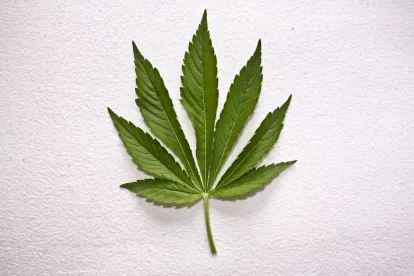An Assortment of marijuana and other drug abuse happenings….Heroin use is surging as governmental efforts mount to halt prescription drug abuse, UPI reports. With prescription opioids and other drugs getting harder to obtain, a study in the New England Journal of Medicine says heroin use has risen nearly100 percent in the past decade. And UPI also says that a National Drug Intelligence Center report showed use of the drug increased 79% between 2007 and 2012, with 80% of users saying they had experience with prescription drugs. Many users are employed.
Illinois Medical Marijuana Law is spawning new rules for impaired driving, although rules to implement the new law itself are still awaited. According to a report in the Peoria Star-Journal, the State Public Health Department’s draft rules require anyone who accepts a state medical marijuana registry card to agree not to drive while impaired and to consent to a field sobriety test requested by a police officer, although having a card is not grounds for making the request. Refusal to test can result in a 12-month suspension of driving privileges and revocation of the driver’s registry card. A test result showing signs of impairment can result in 6-month driver license suspension. There is no state law threshold for marijuana intoxication; according to the report, the presence of any marijuana metabolites would make a motorist subject to DUI prosecution. The proposals have been sent to the Legislature’s Joint Committee on Administrative Rules. Matt Buedel, “Marijuana Law, Vehicle Code In Conflict,” The Peoria Star Journal, Feb. 16, 2014. Meanwhile, according to the state medical marijuana law’s sponsor, Rep. Lou Lang (D-Skokie), employers will be able to keep their drug-free workplace policies. “Whatever rules employers have at their workplace can stay in place,” he is quoted as saying. “We were very specific that if you have a drug-free workplace, it can remain drug free.” See Rockford Register Star, March 8, 2014. (Medical Marijuana Zero Tolerance).
The NLRB settles first cases involving the legal marijuana industry,in an agreement with Wellness Connections, Maine’s largest medical marijuana dispenser, over charges arising out of a year long dispute with the United Food and Commercial Workers Union, which has been seeking to organize the firm’s employees. Although the union had issued a press release suggesting that the agency was about to prosecute the firm in agency compliant proceedings, absent settlement, a National Labor Relations Board representative in Boston said there were “a number of inaccuracies” in the union’s account, according to an article in Lewiston (Me.) Sun Journal. See Koenig & Farwell, “NLRB Becomes Involved In Labor Dispute With Auburn Medical Marijuana Grower,” Medical marijuana dispensaries were legalized in Maine in 2009.




 />i
/>i

